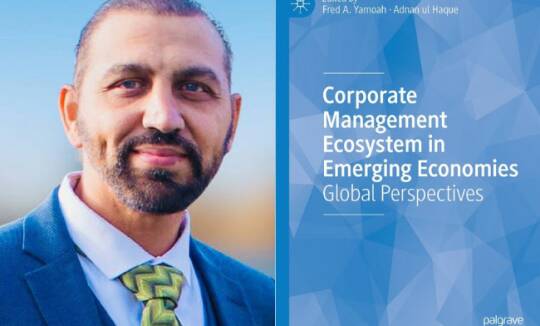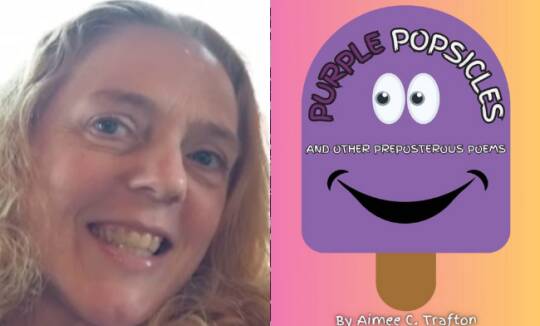You may have grown up playing computer simulation games like The Sims – where you can build a family, choose a career path and learn to manage a household. Now, as an adult in Yorkville University’s Bachelor of Business Administration (BBA) program, you can still play computer-simulated “games”, while at the same time, learning critical business concepts and applying academic theory.
Learning any business concept requires a delicate balance between academic theory, practice and industry expectations. The simulations used in our courses allow students to learn at the nexus of theory, practice and industry expectations. For example, In BUSI 1033 Introduction to Business, students work in groups to manage a café. Not only are they responsible for hiring and managing service staff and inventory, but they must also respond to the consequences of their decisions – so, if they order too many coffee beans and those beans spoil, that spoilage is reflected in their bottom line at the end of the week. The simulation is an interactive tool that requires students to apply what is learned in the classroom – and it allows them to see how different decisions impact different parts of the business and the bottom line.
Business encompasses a large and diverse range of industries – we have had students with a background in banking, the airline industry and the film industry to name a few – and many of them also have a background in Marketing, well at least in sales or advertising. So after BUSI 2063 and the creation of a Marketing Plan what more is there to learn? Lots. So you have done your research, chosen your target markets and designed your latest model of family van, forecasts look good and your market share and revenue are leading the industry. In addition you have just invested in expanding and improving sales coverage in two of your most promising markets and customer satisfaction ratings are through the roof. You submit your decisions but when the results come back your inventory carrying costs are crippling and to add insult to injury you stocked out of your bare bones economy car and experienced in credible overtime charges – what happened? Closer examination shows an economic downturn – really?
These experiences let students understand the inter-relatedness between the functional areas of business and the environment in which the business operates and the potential impacts on marketing decisions. Just imagine if I had thrown in a strike!
Learning to work and communicate in a team is a valuable learning skill for students in any field. In fact, since the majority of BBA students are already working in a business-related environment and therefore already have some working knowledge of some of the concepts from class, each student is able to bring a valuable and unique perspective to their group. This not only enriches the learning experience in the group, but also allows students to establish valuable networks with their peers – in and out of the classroom.
In BUSI2053, Business Ethics, our first goal is to engage students with the issues of ethics in the context of business. While discussion of ethical issues, cases and moral dilemmas present students with the knowledge components of business ethics, we wanted to create an environment in which students would face real ethical challenges while pursuing business objectives. R2’s Deepwater Simulation is such a learning environment. Students, working in small groups of 2 or 3, must operate an oil production rig in the Gulf of Mexico. The objective of the simulation is to outcompete the rival companies (i.e., the other student groups) while dealing with the risks and ethical challenges of operations, maintenance and personnel. Students are confronted with trade-offs between short-term and long-term profits, worker safety, environmental impacts and social needs. The “winner” of the simulation is the group with the best financial performance, but to achieve that will risk environmental catastrophes, such as a blow out, which will put the oil rig out of operation and end the simulation for that group.
Our second goal was to include assessment of students’ ability to confront and make decisions around ethical business issues. As Deepwater requires students to make financial decisions that are impacted by their ethical challenges, the simulation provides a measurement of student ethical performance.
Game-based learning, such as the simulations used in the BBA courses, are an enjoyable and practical way of combining theory with practice and industry expectations. It’s education in the 21st century. Its fun and we all know that we learn best by doing!
Simulations have been around for a long time and for good reason. This is probably the only opportunity you will have during your career where you can experiment with strategic decisions with very little risk. Simulations allow you to “test” strategies but if they fail all is not lost. Bankruptcy will not haunt you for the next seven years, an error in order placement will not get you fired and a failure to pay bonuses won’t get you sued but the actions that got you there will stay in your mind for a long time.
Why does Yorkville University believe in the value of simulations? Because the best managers, the best entrepreneurs and the best CEOs solve problems based on knowledge and experience. They don’t pull their old textbook off the shelf and look up the answer.
This Guest Blog post was written by BBA faculty members Dr. Shelley Rinehart, Dr. Dan Nicholes and Ms. Lisa Allen.






